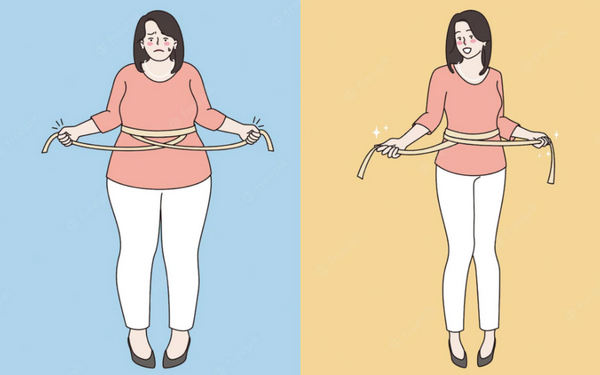
The Hidden Dangers of Rapid Weight Loss
In today's society, the desire to achieve a leaner and fitter body has led many individuals to adopt various weight loss strategies. While shedding excess pounds is often seen as a positive goal, it is essential to understand the potential dangers associated with losing weight too quickly. Rapid weight loss can have detrimental effects on both physical and mental health, and it is crucial to prioritize sustainable and healthy approaches to achieve long-term well-being.
- Nutritional Deficiencies: One of the primary concerns with sudden weight loss is the risk of developing nutritional deficiencies. Drastically reducing calorie intake or following extreme diets can deprive the body of essential nutrients, including vitamins, minerals, and macronutrients. Such deficiencies can lead to weakness, fatigue, impaired immune function, and an increased susceptibility to illness. Moreover, inadequate nutrient intake can also have long-term consequences on bone health, cardiovascular function, and hormonal balance.
- Muscle Loss: Losing weight too rapidly often results in the loss of both fat and muscle mass. While shedding excess body fat is a common goal, losing muscle can be detrimental to overall health. Muscles are essential for maintaining a healthy metabolism, supporting joint stability, and promoting overall strength and mobility. Rapid weight loss, especially without incorporating regular exercise and strength training, can lead to muscle wasting, weakness, and a slower metabolism, making it more difficult to maintain weight loss in the long term.
- Gallstone Formation: Rapid weight loss, particularly in individuals who are obese or overweight, can increase the risk of gallstone formation. The gallbladder stores bile, which aids in the digestion of fats. When weight is lost too quickly, the liver excretes excessive amounts of cholesterol into the bile, leading to the formation of gallstones. These small, solid deposits can cause severe pain, digestive issues, and, in some cases, require surgical intervention.
- Electrolyte Imbalance: Sudden weight loss can disrupt the delicate balance of electrolytes in the body, such as sodium, potassium, and magnesium. Electrolytes play a crucial role in maintaining proper hydration, nerve function, and muscle contractions. Insufficient intake or rapid loss of body fluids can lead to an electrolyte imbalance, resulting in symptoms like muscle cramps, weakness, irregular heartbeat, dizziness, and in extreme cases, even cardiac complications.
- Psychological Impact: The pursuit of rapid weight loss can also have a significant psychological impact. Extreme dieting or an obsession with weight loss can contribute to the development of disordered eating patterns and a negative body image. This can lead to a cycle of unhealthy behaviors, including yo-yo dieting, binge-eating, and feelings of guilt and shame. The psychological toll of rapid weight loss can take a toll on one's overall well-being, creating an unhealthy relationship with food and self-image.
While it is natural to desire weight loss for health and aesthetic reasons, the dangers associated with losing weight too quickly should not be ignored. Prioritizing sustainable and healthy habits, including a balanced diet, regular physical activity, and gradual weight loss, is crucial for long-term success and well-being. It is essential to consult with healthcare professionals, such as registered dietitians or physicians, who can provide personalized guidance and support throughout the weight loss journey. Remember, health is a holistic concept that encompasses physical and mental well-being, and it should be approached with care and patience.











